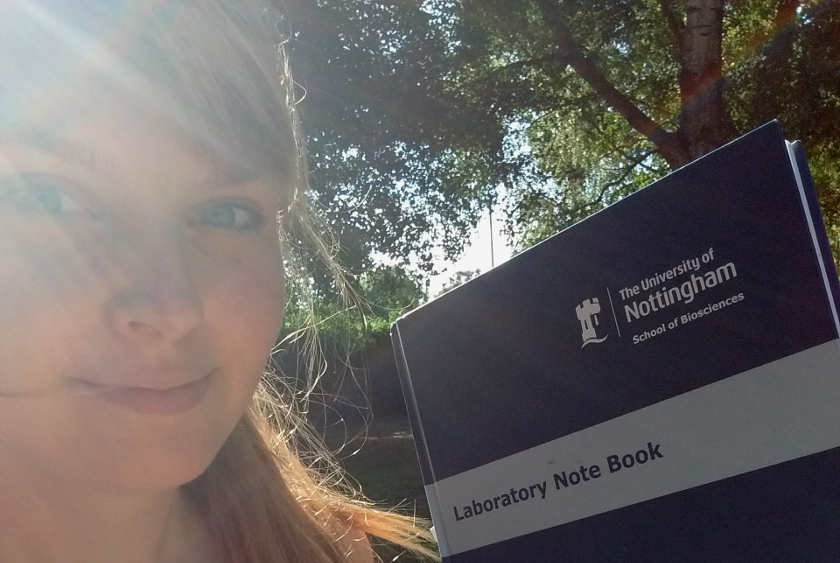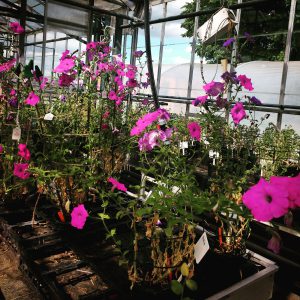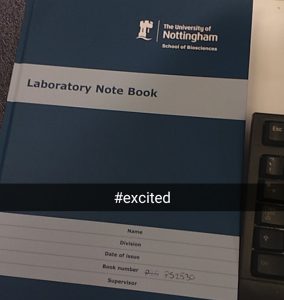
November 25, 2016, by Carla
Six Things I Wish I’d Known Before I Started Searching for a Placement
By Alice Foxall, BSc Hons Plant Science
This summer I completed a research placement within the University’s Plant Sciences department. For two months, I was researching a subject that I’m interested in and being paid for it. It was great!
There are lots of different types of summer placements, and it can be quite overwhelming when you begin your search. The summer may seem far away right now, but I actually kicked off my hunt around this time last year.
I’m particularly interested in carrying out research after I graduate, so I looked for opportunities in universities and research institutes. If you’re feeling a bit overwhelmed by the prospect, here’s a few things I wish someone had told me before I started searching for my placement.
1. Applying for research placements is different
For research placements, you usually apply for a project in a university or research institute and then apply for funding separately from research councils or societies. You will also need to find a suitable supervisor and project before applying for funding, as funding applications need to know a specific outline of what you want to achieve.
2. Pick a supervisor you get on well with

Working in the greenhouse
Don’t just pick a supervisor based on whether they make you laugh in lectures. You need to find your supervisor approachable, and a research topic that you find interesting. It’s also good to ask potential supervisors how many people they have in their lab on a daily bases – for example, PhD students and postdoctoral researchers – as these are the people who will most likely be teaching you techniques, and are who you will work with day-to-day.
3. Consider where you want to work
Do you want to work in a lab or do you think you would prefer to work in an office? Would you like to work in the outdoors or somewhere else? I wanted to work in a lab, but I also wanted to try some greenhouse work, as I study plant science. I found a project that involved molecular biology, so I could gain some lab experience; but also involved pollination, so I could do some of the work in the greenhouse.
Find a supervisor who is working on a topic that you would like to research, and ask them if it would be possible to work in your preferred locations.
4. Apply for more than one funding opportunity
I only applied for funding from one research council, and luckily I was successful. However, generally one funding opportunity only has a few places, so apply to as many funding bodies as possible. If you are interested in bioscience-related research, the Society of Biology website is a good place to start or the Careers website has more general information.

My first day
Research funding opportunities thoroughly. For some schemes, your research project in the summer has to be unrelated to your research project in your final year. With some societies your supervisor needs to be a society member before you can apply, so make sure you check this out with plenty of notice for the application deadline. Applying for funding may seem like a lot of hassle, but you’ll be glad you did it when you get paid!
5. Ask for advice
I spent ages looking for funding opportunities on the internet. However, it was my tutor that told me about the BBSRC Research Experience Placement funding, which
eventually ended up paying for my placement. You can also book appointments with the Careers and Employability Service to get your CV and applications to funding bodies and research institutes checked.
6. Enjoy it!
I learned so much on my placement. Not only did I learn practical lab skills, I also learned how to stay motivated when working independently and how to communicate with other researchers. Although placements can be hard work, it is a great experience, so make sure you enjoy it.
If you feel inspired to start your hunt now, lots of information about internships and placements can be found here. If you’re graduating this December and still haven’t decided on your next step, try a graduate internship through the Nottingham Internship Scheme.

I Really appreciate your blog.Just like you said it is a struggle to fund your studies, im totally in a mesh even money for submitting my application is not there and a problem already. so im looking left and right to see who could lift off this weight from my shoulder. I’m interested in studying Management psychology Msc.But optimistic that i shall have to go for this study in this university, i love it after reading the prospectus.
This blog has pulled me off from ground
Big thanks Alice.
Best wishes Joseph Andima